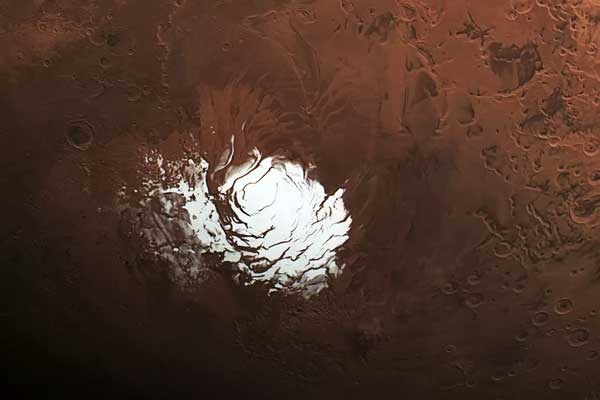
New Delhi : The possibility of water presence on Mars has been strengthened. Researchers in Europe quoting data from the Mars Express claimed that salt lakes exist on an area of 75 thousand square kilometers on Mars. This confirms that there must have been seas and lakes on Mars billions of years ago and there may have been life like Antarctica.
The research was published in the journal Nature Astronomy, based on the data of the European Space Agency Mars Orbiter Spacecraft, or Mars Express. This spacecraft had claimed the presence of a lake on Mars in 2018. Scientists then agreed with this based on 29 assessments from different sources. Based on the total of 134 assessments made between 2012-2019 in this new research, it has been concluded that there is a salt lake of 30 square kilometers on the south pole of Mars. Not only this, it also has three small salt lakes within its scope.
University of Rome astronomer and researcher Alain Pettanelli said the confirmation of salt lakes is evidence that there must have been seas and lakes on Mars at some time. This fact also indicates that there may have been an Antarctic-like life there. However, it is also clear from the current nature of the lakes that the amount of salt in the water must have been very high. Bringing it back to the form of water will not be easy.
According to research, the existence of salt lakes was confirmed by Marsis, an equipment on Mars Express. With this device, radio waves were placed on the surface of Mars, which collided and returned. This result is drawn from this analysis. This technique is reliable, because it is also used to assess water, ice and rocks in the area of glaciers on earth. According to research, salt lakes are estimated to be present in an area of about 75 thousand square kilometers on Mars. It is an area equal to one fifth of Germany. It is believed that this area must have been a sea of salt.










